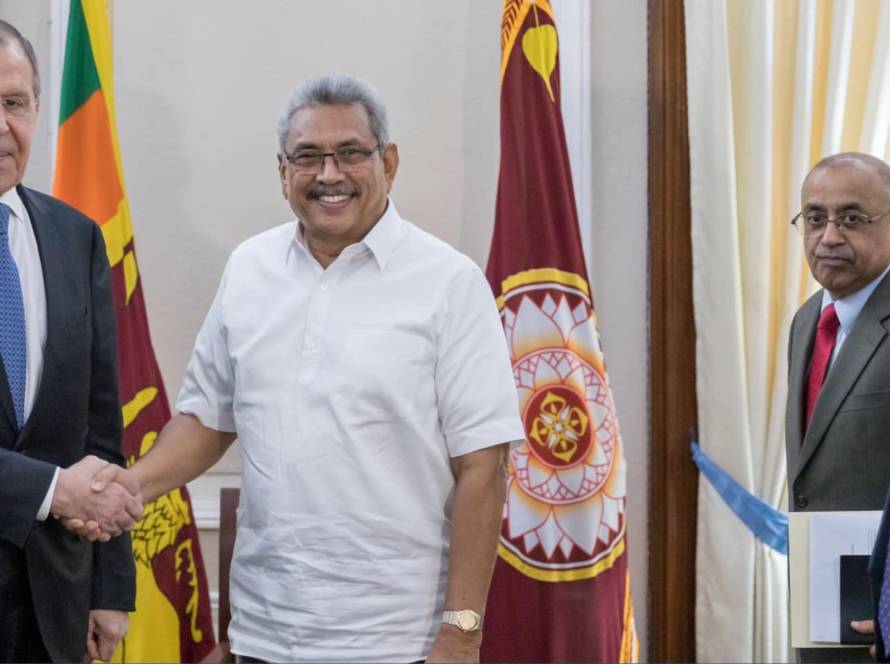By Uditha Devapriya
There are decades when years happen, years when months happen, and days when decades happen. Then there is Bangladesh. The images coming out of Dhaka over the last few weeks should astonish anybody who thought that Sheikh Hasina, who won a fifth consecutive term as Prime Minister in January this year, would ensure business as usual in the country. Yet for the hundreds of thousands of students and youth activists who marched out into the streets against her, “business as usual” was never going to be an option.
Hasina’s exact whereabouts are uncertain, but she is in India. Not because her party, the Awami League, has been stridently pro-Indian, but also because she has nowhere else to go. Reports indicate that she and her sister Rehana are on her way to London, where she has sought political asylum. The UK, reeling under an upsurge in anti-immigrant and anti-Muslim riots, has yet to respond to her request. Until it does, she will remain in India. Meanwhile, in Bangladesh, the military, under the country’s Army-General Waqar-uz-Zaman, has formed an interim government, and has called for everyone’s cooperation.
The protests have been bloody. The death toll on Sunday alone was 90. So far more than 250 have been killed. The government’s response to them was to call protesters terrorists if not descendants of “razakars” (Pakistani collaborators) and then argue that the government and military were practicing restraint. It also tried to reduce the demonstrations to the job quota system. Yet the protests weren’t just about the quota. The quota system, with all its flaws, was the trigger. What it led to was something bigger: a spontaneous combustion of dissent against a government widely seen as corrupt and authoritarian.
Hasina’s Awami League has been in power since 2008. Consider what has transpired since then. Sri Lanka has seen three governments. The United States has seen four. When she came to power, Manmohan Singh was India’s Prime Minister. Russia, which was part of the G8 then, had someone other than Vladimir Putin (at least nominally) as President. She has been in power longer than any other elected South Asian head of state since then.
It would be tempting to say that incumbency fatigue was what undid the Awami League. But that would be the tip of the iceberg. During the last 16 years, Sheikh Hasina managed to tame the country’s Opposition, jailing her main rival Khaled Zia. The Opposition, for its part, responded by boycotting elections. Not surprisingly, in all the elections she has faced since 2008 – 2014, 2018, and 2024 – her party received more than 70 percent. The latest polls, declared as free and fair by some observers, have been criticized by the US, UK, and various human rights bodies. In any case, the low voter turnout – 41 percent – revealed the level of disillusionment that had swept across the country.
The economy also figured prominently in the protests. Over the last few years, the country has made impressive strides on several indicators, including exports. It has been held up as a model for other countries, including Sri Lanka. Nevertheless, since last year, there has been a decline in growth. Inflation is hovering at 10 percent, while unemployment, particularly among the youth, has grown. Earlier this year, the country’s Finance Minister tried to pacify critics by saying that the government’s reforms were “beginning to bear fruit.” Yet as even the anti-quota protests showed, job opportunities are diminishing, and this has been felt most strongly by undergraduates and the youth in general. As for development, critics point out that this has been limited to largescale infrastructure projects.
The extent and scale of these protests certainly ruffled the government. As in Sri Lanka, the Prime Minister declared curfews, cut off social and the internet, and alleged that certain nefarious elements had taken over the demonstrations. In Hasina’s case, these elements happen to be hardcore Islamists. Her government’s narrative, hence, was that the protests had been coopted by anti-Indian and anti-Hindu elements, Islamist radicals who want to undermine the country’s secularism. This line has been taken by the right-wing conservative Indian media as well. To be sure, videos of some protesters attacking Hindu councilors, temples, and homes have added to these rumors. However, the protesters themselves have called for calm and condemned these attacks on social media.
All these point to another important aspect, the geopolitics of the protests. Not unlike Sri Lanka, Bangladesh’s foreign policy has pivoted on three powers, India, China, and the US. Under Hasina, Bangladesh solidified relations with India, to the point where she was seen as Delhi’s preferred candidate. This did not win her any favors with the people. Indeed, at this year’s election, anti-government forces whipped up an “India Out” campaign. Analysts note that India-Bangladesh relations may take a hit after Hasina’s relations, though considering the extent of bilateral trade – Bangladesh remains India’s biggest trade partner in South Asia while India has become Bangladesh’s second biggest trade partner in Asia – there may not be a dramatic downturn in economic ties.
During her term, Hasina attempted, to India’s consternation, to balance Delhi and Beijing. Shortly after a visit to India last June, she flew to China with a delegation of almost 200 members. She expected the Chinese to respond positively to her request for a USD 5 billion low interest loan, but that never materialized. Observers noted that Hasina’s tilt to India, which had cost her support among her people, had turned Beijing away.
This leaves the US, which has its own designs in the region. Partly because of historical reasons – the US sided with Pakistan during the 1971 Liberation War – the Awami League has never enjoyed good, sustained relations with Washington. The United States, for its part, has responded lukewarmly at best and hostilely at worst to Hasina.
Nevertheless, Washington clearly sees Bangladesh as an important part of its containment strategy against China. It has requested the country to sign various defense agreements. Dhaka, as expected, has declined. Given the US’s history of regime change, media reports have surfaced about Hasina’s resignation being orchestrated by an external party. Indeed, immediately after last January’s election, Hasina herself went on record stating that one country had tried to make a deal with her. She did not name the country, except to say that the person who approached her was a “white man.”
It goes without saying that Hasina’s resignation has provided an opening to any party that wants to expand its sphere of influence in the region without going through India. Until now, Washington’s interventions in South Asia have been, at best, contingent on India’s wishes. Regardless of the alignment of interests between the two countries, particularly over China, it is in the United States’ interest to establish a power base in South Asia independent of New Delhi. This seems somewhat unlikely in the short-term, but given the scale of anti-Indian sentiment in Bangladesh, it remains a distinct possibility. China is not likely to remain silent, but we will know more only when the military, and the new government, comes out clear on its foreign policy. What we do know so far is that the US has welcomed the interim government.
The situation in Bangladesh offers potent lessons for other countries, specifically in South Asia. For years, Bangladesh was touted as an economic success story. Yet economic success, measured on conventional metrics, has not been and will not be enough to pacify mass resistance. In Sri Lanka, too, a government is pushing through economic policies, much of which it says has been on the recommendation of the International Monetary Fund and World Bank. Yet without a clear audit of what the people feel and how they are responding to these reforms, there will always be space for mass uprisings.
What happens next in Bangladesh is anybody’s guess. So far, a number of names have been floated as possible candidates for Prime Minister. These include lawyers, ex-police and military officials, retired civil servants and bureaucrats, political advisors, and economists and policymakers. The country remains in turmoil, with no functioning government. As in Sri Lanka in 2022, MPs’ houses have been burnt down. This is natural in any situation of mass resistance to, and anger against, the political establishment. Whether the military can or will intervene to restore law and order remains to be seen. One thing remains clear, however: there can never be a return to the way things were. Bangladesh has lived through 16 years of Awami League rule. This is the morning after.
With inputs from a senior journalist from Dhaka.
Uditha Devapriya is the Chief Analyst – International Relations at Factum and can be reached at uditha@factum.lk.
Factum is an Asia-Pacific focused think tank on International Relations, Tech Cooperation, Strategic Communications, and Climate Outreach accessible via www.factum.lk.
The views expressed here are the author’s own and do not necessarily reflect the organization’s.


